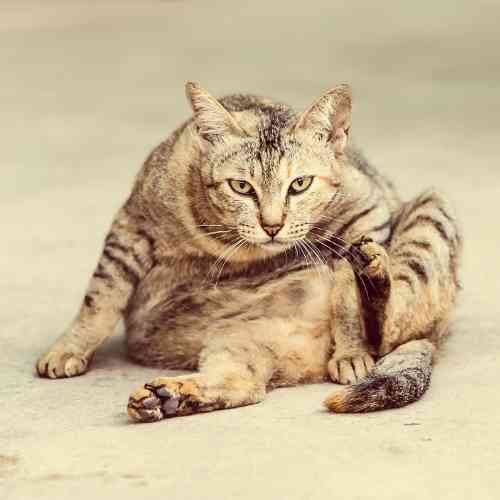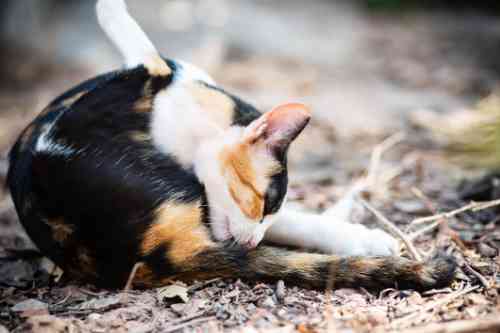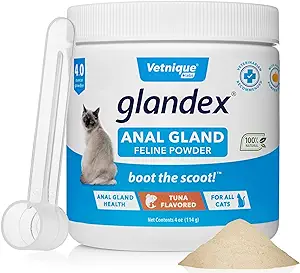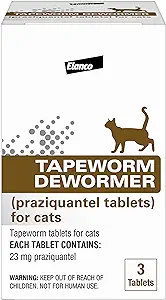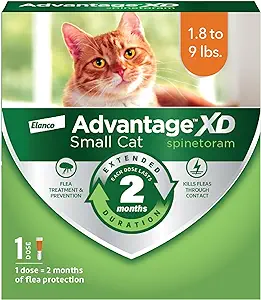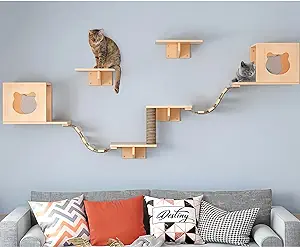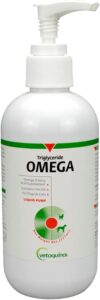Why is my cat scooting across the floor
What causes itching in your cat’s anus?
In this article we will tell you more about the causes of why your cat is scooting across the floor. Why can your cat’s anus become itchy? And what exactly is scooting in your cat? And of course we will tell you what you can do yourself if your cat rubs its bottom on the ground. We hope that in this article you will find the solution to your cat’s annoying scooting and that your cat will soon no longer have an itchy anus.
What is scooting across the floor in your cat?
When a cat rubs its bottom on the ground, it takes on a certain position. His hind legs protrude forward over the ground, his anus is tight on the ground, his tail drags on the ground behind your cat and he rubs his anus against the ground by pulling himself forward with his front legs. In this video you see an example of what scooting in your cat looks like.
Your cat will be scooting because he feels an itch or irritation in his buttocks and, more specifically, in his anus. And there are several reasons for this. We discuss them in more detail below.
Causes of why your cat is scooting across the floor
Impacted analglands
Most of the time scooting across the floor in your cat is caused by the fact your cat’s analglands are impacted. The analglands are two small glands that are located next to the anus and that opens into the anal cavity. These glands are emptied each time your cat poops. The analgland fluid is draped your cat’s feces, giving it the specific cat-like odor. This way other cats know that it is his feces. Handy if you want to mark your territory as a cat. If your cat doesn’t need to strain on its stool the analglands may get enlarged causing an itch on its anus and thus scooting.
To ensure that the analglands function healthily, giving Glandex is the solution. The analgland fluid quality improves, the health of the analglands improves and your cat will have slightly firmer stools so that he empties his analglands when straining to get the stool out.
Worms as a cause of scooting across the floor in your cat
If your cat has worms in his intestines, these worms can occasionally come out in living form through his anus. They then move a little. And this can cause itching in the anus, causing your cat to go scooting across the floor. We often see this behavior, especially if your cat has a tapeworm. The small pieces that come off a tapeworm can move on their own to spread the eggs in the surrounding of your cat’s living area as far as possible. When they come out of your cat’s anus, they are very mobile and therefore cause itching in your cat’s anus. Cats that hunt mice or birds a lot or cats with fleas are particularly likely to get tapeworms.
It is best to give your cat a deworming if he has not had one in the past month. Make sure that the product works against tapeworms. It is best to use the product below for your cat.
Your cat is scooting after pooping
There are also many cats that are scooting across the floor after pooping. They do this because they feel a strange feeling after pooping. For example, it may be that there is still a very small amount of feces left on their anus and they want to get rid of it. Or emptying their anal glands caused a bit of an irritating sensation. And of course it is possible that long-haired cats still have something stuck in their hair that they want to get rid of.
It is thought that this is partly self-learned behaviour. In any case, you can try to make your cat’s stool becomes a little harder and that he has to strain a little more so that his anal glands empty better. This way you may see less scooting in your cat. His stool also improves so there is less chance of little bits left behind on its anus. For this, Royal Canin Gastrointestinal Fiber response is the best you can give.
Flea (allergy)
This is probably something you’ve already checked. Itchiness is mostly correlated with fleas. Fleas can also cause your cat to go scooting across the floor. And especially a flea allergy. If your cat has fleas, it will be itchy from the movement and biting of the fleas. In the case of a flea allergy, your cat also suffers from excessive itching as a result of an allergic reaction to the flea’s saliva. So in case of a flea allergy the itchiness is twofolded.
A flea allergy mainly manifests itself on your cat’s buttocks. You often also feel scabs on your cat’s buttocks, just in front of his tail. And in addition, scooting is an extremely suitable way for your cat to fight that annoying itching on his buttocks. With a flea allergy, your cat only needs to have 1 flea in its fur. This is easy for you as the owner to miss. So use a good flea product if you have not already done so in the past month and repeat this every month. Advantage is a very good product and relatively cheap means for this. It also has little side effects.
Food allergy or atopic allergy
A food allergy or atopic allergy also causes itching in your cat. This is an allergic reaction to a substance that your cat ingests (via food or inhaled air). In fact, you always notice that your cat also has a lot of itching on the rest of its body. For example, you will usually see that your cat grooms much more often than a cat without allergies. And sometimes there are even real wounds on his body as a result of biting and scratching to get rid of the itching. But there are also cats with very mild itching complaints that only go scooting across the floor and show no other symptoms.
You can do a food allergy test with Royal Canin Anallergenic for cats. This food does contain nutrients, but they are made so small that the immune system (which is responsible for the allergic reaction) does not recognise the nutrients. However, it will take at least 3 weeks for all the old nutrients to be dissolved from your cat’s body. Unfortunately, you will only start to see results after a month. And in the meantime, your cat should not eat any other treats or extras because these can also cause the allergy.
Unfortunately, an atopic allergy can only be diagnosed with the help of your veterinarian. He will probably suggest a blood test. Or he or she will give medication that will suppress the itching in your cat.
Stress that manifests itself in scooting across the floor for your cat
It is not the most common way to express stress, but it is thought that cats can also go scooting across the floor if they experience chronic stress. scooting has a calming effect on your cat, allowing it to better deal with the stress it experiences. In most cases, stress manifests itself in excessive washing of the abdominal region (a bald abdomen is created) and regular bladder infections. Do you have the idea that your cat is scooting as a result of stress? Then it is of course important to tackle the cause of the stress. Make sure your cat can climb comfortably and “flee” high, far away from the source of the stress.
Do you have no idea why your cat is stressed, but do you think he is? Then you can give him Royal Canin Calm diet. This contains substances that will cause him to produce more Serotonin in his brain. This will make him less sensitive to stress. You should see it start to work somewhere between two and four weeks.
Resolving general itching in your cat
If your cat’s scooting across the floor problem is still not resolved with the above given solutions, you can try whether a general anti-itch medication helps your cat. For example, omega-3 and omega-6 fatty acids are very suitable for this. They increase the resistance of your cat’s skin, making it less itchy. It is best to give Vétoquinol Trigliceride Omega to your cat. But palmitoylethanolamide (PEA) also ensures that skin resistance increases enormously and itching is suppressed.
We hope that with the tips and tricks we opted you can ensure that you will no longer see your cat scooting across the floor. Very pleasant for both you and your cat. Good luck!

